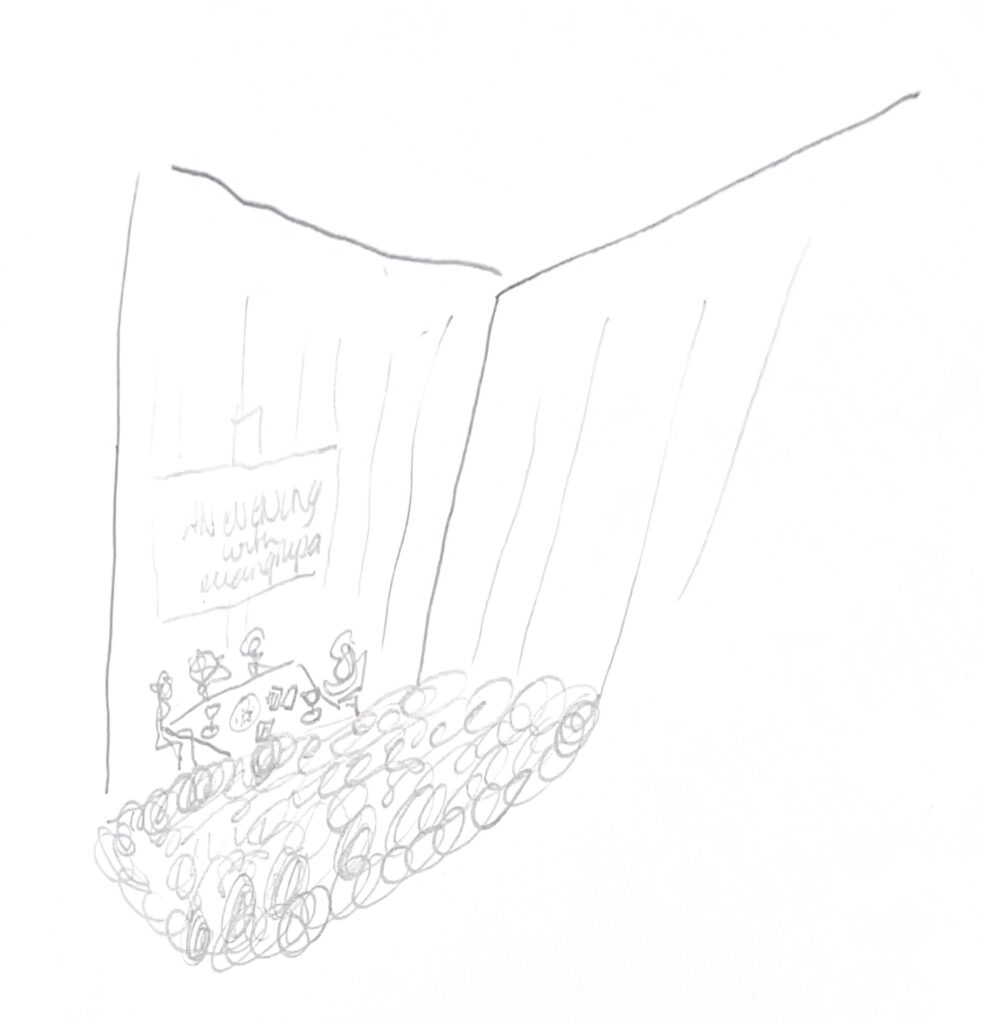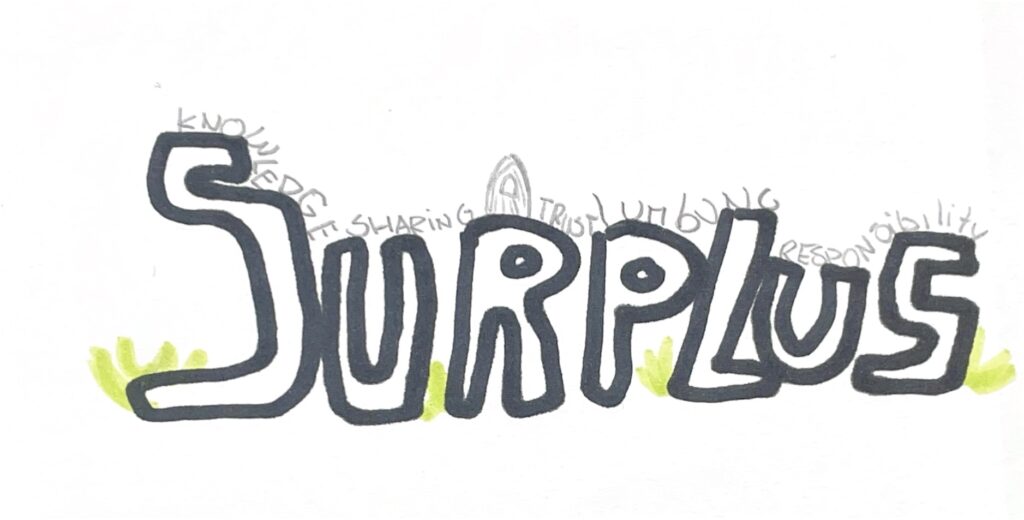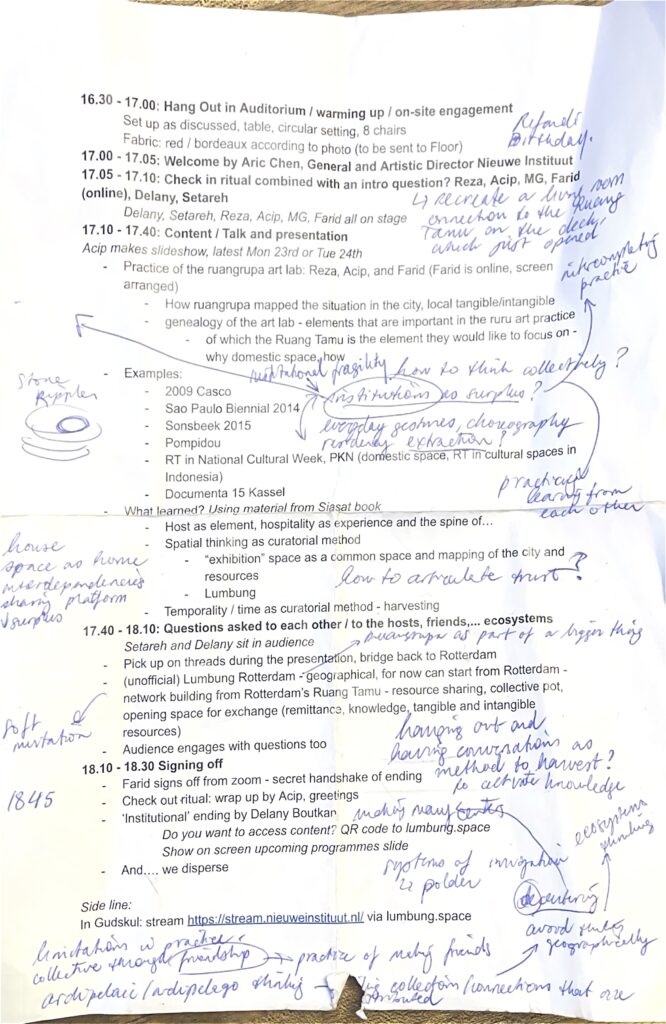A large table, decorated with a soft, red cloth and books and snacks scattered across it, stands in front of the audience. The latter are seated on stairs-like benches going up in height as one moves further to the back of the Nieuwe Instituut’s auditorium. One of the first things Reza Afisina (ruangrupa) voices, is the wish to break through the literal and figurative hierarchy of the room. Angga Cipta (Gudskul), proposes to start the evening with a check-in ritual and asks: when was the last time you went to a sports match in a sports arena? Setareh Noorani and Delany Boutkan (Nieuwe Instituut) make their way through the crowd, passing on the microphone to audience members who share recollections of cherished experiences, or vague memories.

After the opening ritual, Reza takes the audience along in ruangrupa’s way of existing, of practicing and sharing. He starts, noticeably, not with the multitude of things ruangrupa has ‘done’ or ‘achieved’, but rather emphasizes the experienced limits of the collective and the challenges they face in their practices. How to navigate ‘space’, which has become their common enemy? How, and where, to find room? How to narrate ruangrupa? How to create space? In fact, how to make a space living? What does the practice and feeling of ‘home’ entail? How to think collectively? How to articulate accessibility?
Online speakers Farid Rakun and Iswanto Hartono (ruangrupa) add that ruangrupa is constantly searching how to best adjust to localities, how to engage, how to be there: taste the water, throw in a stone and see where the ripples go.
A recurring theme throughout the evening is the notion of surplus. Surplus is, as Farid explains, a particular way of understanding lumbung. The latter, “directly translatable as ‘rice barn’, is a collective pot or accumulation system, where crops produced by a community [are] stored as a future shared common resource” (ruangrupa, 2019, p. 1). Surplus entails, at the core, a careful consideration of the question: how to practice learning from each other? Contrary to the popular sentiment that knowledge is in deficit, ruangrupa challenges its alleged scarcity: “we know we’re sitting on a lot of knowledge, but how to share it?” Such thought experiments, ultimately, hinge on a more fundamental question, namely, how to articulate and manage trust?

An audience member asks the people of ruangrupa whether the geographical fact of being situated in an archipelago helped with what could be described as de-centralised thinking and practicing. Farid explains that they avoid thinking geographically. Even more, they avoid using suffixes and taking an antagonistic stance. It is, then, not so much about de-centering, but rather, about the act of making a lot of centers.
More than being a classic keynote lecture for the audience, An Evening With ruangrupa entailed a collective pondering with the people in the room.

Sources:
ruangrupa’s proposal for documenta 15, January 2019, via https://lumbung.space/timeline/pen.lumbung.space/ruangrupas-proposal-for-documenta-15-january-2019/
